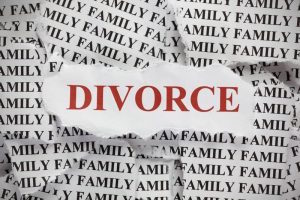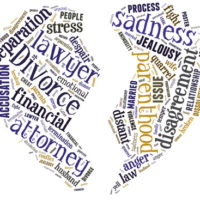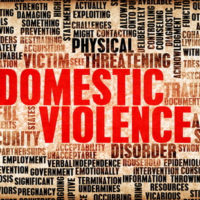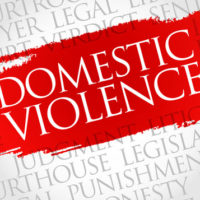
Children Born Out of Wedlock – Legitimation and Paternity
 There are many reasons why a man might want a child. The joys of fatherhood are plentiful. Children and parents often make memories that last their entire lives. As such, there is no limit to the reasons why a father, or even a mother, might want to make sure that the law recognizes a father-son relationship.
There are many reasons why a man might want a child. The joys of fatherhood are plentiful. Children and parents often make memories that last their entire lives. As such, there is no limit to the reasons why a father, or even a mother, might want to make sure that the law recognizes a father-son relationship.
In North Carolina, if a married woman has a child, the state presumes that her husband is the father of the child. However, this is not necessarily so with an unmarried woman. If a child is born out of wedlock, and the woman is unmarried, the child then only has legal connection to her. In that instance, either the father will want the state to recognize the child as his through legitimization, or perhaps, the mother will want the state to recognize the father’s status to the child through a paternity process.
Legitimation
In North Carolina, for children who are born out of wedlock, there is a process called legitimation, which can allow them to have the same rights and privileges as children born in wedlock. The legitimation process, as opposed to the paternity process (discussed below), focuses on the status of the child, not necessarily that of the father.
In order to legitimize a child born in North Carolina, one of two things can happen. First, the father and the mother can marry. After the marriage, the state will automatically consider the child as legitimate.
If for whatever reason, the father and mother do not want to marry, then the second option is to involve the court system. The father will want to file a legitimation petition requesting legitimacy of his child. The father must name both the mother and the child as parties to the action. During the action, the father must convince the court that he is the child’s father. If after reviewing the evidence that the father presents, the court is satisfied and believes it, then the court will grant the petition and will declare the child legitimated. After that, the state will issue a new birth certificate containing both the mother’s and the father’s names. When legitimacy is established, paternity is not an issue.
Paternity
As already discussed, legitimation is more about the status of the child. Paternity, on the other hand, concerns the status of the father to the child. In other words, is a man the father of the child at issue? However, even if paternity is established, that does not necessarily mean that the state will consider the child as a legitimate one.
Paternity issues usually arise within or are attached to other court proceedings, such as suits for child support. Also, unlike the legitimacy action, anybody can file a paternity action—even the state can file the action if it believes it is necessary. If the court finds paternity, then the rights, duties, and obligations of the father will become the same as if the child was the legitimate child of the father, especially with respect to custody and support of the child.
Your Child, Your Fight, Our Help
Whether you are interested in establishing the legitimacy of a child to let the state know that the child is yours or you are interested in establishing paternity, so that the father finally helps with the child’s care, you will want to have somebody on your side. Navigating the differences between legitimation and paternity, finding and drafting the proper paperwork, and interacting with the North Carolina court system can become daunting after a while. When it comes to your family, you do not want a daunting process—you want a smooth process. Make sure to call the family law attorneys at Powers Landreth PLLC in Charlotte today to create such a smooth process for you.
Resources:
ncga.state.nc.us/EnactedLegislation/Statutes/PDF/BySection/Chapter_130A/GS_130A-101.pdf
ncleg.net/EnactedLegislation/Statutes/PDF/BySection/Chapter_49/GS_49-16.pdf
Learn More
Modifying Child Custody Orders
 When a divorce involves children, the North Carolina court system may have to help the parents determine how the children will spend their time between the two parents. In an earlier post, we briefly discussed child custody orders and explained that they were somewhat of a last resort in instances where the parents themselves could not agree on a custody arrangement.
When a divorce involves children, the North Carolina court system may have to help the parents determine how the children will spend their time between the two parents. In an earlier post, we briefly discussed child custody orders and explained that they were somewhat of a last resort in instances where the parents themselves could not agree on a custody arrangement.
After a custody order is set into place, it is usually in the best interests of everybody involved to abide by the order. However, custody orders are not set in stone. The courts can revisit them. Therefore, sometimes, one party will seek to modify a prior custody order.
The Law
According to North Carolina law, and as reaffirmed in a recent North Carolina Court of Appeals case, Laprade v. Barry, in order to modify a court child custody order, the party that argues for modification must show that a substantial change of circumstances is affecting the welfare of the child at issue. This change does not have to be a negative or harmful change against the child—it must simply be a substantial change.
After analyzing the evidence, if the court determines that a substantial change has occurred or is occurring, the court must then determine whether it would be in the best interests of the child to modify the custody order. When it comes to child custody issues, the courts generally want to know whether a certain decision will or will not be in the best interests of the child. So, if a custody order modification is not in the best interests of the child, then the parents must continue to abide by the existing custody order.
Laprade
In Laprade, the family had an existing custody order. The court gave primary physical care and custody to the father. The mother had secondary custody, and this was primarily because of actions she would take, such as repeatedly taking the child to the doctor alleging abuse from the father and reaching out to law enforcement with false claims.
In April of 2014, the mother argued that there was a substantial change of circumstances, pointing to things such as how the father’s girlfriend was the one primarily taking care of the child when it came time for the child to be with the father. After analyzing the evidence in the case, the court concluded that the circumstances had changed. For instance, the mother no longer took the child for unnecessary doctor visits and she no longer contacted law enforcement unnecessarily. Thus, in the court’s eyes, the mother’s circumstances changed for the better.
On the other hand, the father’s did not; they worsened. In fact, the court indicated that the father had poor communication habits with the mother, would not allow the child to talk to the mother in private while under his care, and refused to give the mother his girlfriend’s contact information even though the girlfriend substantially cared for the child.
Ultimately, according to the court, there was a substantial change of circumstances, and the best interests of the child would dictate to modify the custody order.
Your Child Custody Order
Going through a divorce can be tough. When children are involved, things might become harder. However, they do not have to be unbearable. We want to make sure that you get the custody arrangement that you deserve with your children. That is why we are here ready to help you through the process. Make sure to contact Powers Landreth PLLC in Charlotte today with your child custody needs.
Learn More
Using a Courthouse Dog for Emotional Support
 Appearing before a judge in court, not to mention cases that involve a jury, can be intimidating. For victims who have been sexually assaulted, emotionally tormented, or physically beaten, facing the perpetrator in court can be a truly traumatic event. Luckily, an attorney will help walk you through this process and ensure that you are ready when the time comes to face your violent partner, or will help your child feel secure, brave, and truthful. Additionally, there are new options emerging in North Carolina to help witnesses and victims in court, such as the use of courthouse therapy dogs.
Appearing before a judge in court, not to mention cases that involve a jury, can be intimidating. For victims who have been sexually assaulted, emotionally tormented, or physically beaten, facing the perpetrator in court can be a truly traumatic event. Luckily, an attorney will help walk you through this process and ensure that you are ready when the time comes to face your violent partner, or will help your child feel secure, brave, and truthful. Additionally, there are new options emerging in North Carolina to help witnesses and victims in court, such as the use of courthouse therapy dogs.
Courthouse Dog, Teghan, to be First Therapy Dog Used in North Carolina Court
While the concept is still catching on in North Carolina, many other states have adopted the use of courthouse dogs as sources of therapy during high-stress cases for people exposed to domestic violence, and other victims. Recently, Johnston County became the first to allow the use of a courthouse dog, according to WRAL News. Teghan, a yellow lab, will help ease the pain, fear, and anxiety that many people feel in Johnston County. Local businesses have paid for veterinary costs, the dog’s training, and other expenses all in an effort to level the playing field for victims in court.
How the Defense Uses Your Anxiety, Fear, and Other Emotions to Your Disadvantage
Being confident, articulate, and calm in court is a vital part of your case’s success, whether you are appearing before a judge or a jury. This is always much easier said than done, as even preparation by your attorney can still leave you with high strung nerves. For Charlotte victims of domestic violence, sometimes no amount of practice can prepare them for facing their abuser in court. According to the U.S. Department of Justice, some of the most common mistakes that witnesses or victims make on the stand include:
- Not speaking clearly or loudly;
- Failing to understand the question;
- Appearing disheveled or uneasy;
- Losing their temper;
- Not fully explaining yes or no questions with further detail;
- Failing to appear positive or confident;
- Volunteering information; and
- Not abiding by the courtroom rules.
A courthouse therapy dog may provide the reassurance, comfort, and feeling of security to put many of your anxieties to rest. While a therapy dog may not be available in your case, a compassionate attorney will use other methods and strategies to help you in the courtroom.
Enlist the Help of an Experienced Charlotte, North Carolina Attorney Today
A compassionate domestic violence attorney with experience in such cases will understand the fragile emotional and psychological state that you are coming from. They will provide professional preparation and do everything in their power to put you at ease for your time in court. If you are seeking relief from an abusive relationship, please feel free to contact the Charlotte attorneys of Powers Landreth PLLC today or at your soonest availability.
Resources:
wral.com/johnston-county-hires-dog-to-comfort-courtroom-victims-witnesses/16770705/
justice.gov/usao-mdpa/victim-witness-assistance/tips-testifying-court
Learn More
Stepparents’ Child Custody and Visitation Rights
 When a marriage comes to an end, child custody is often one of the most hotly contested items throughout the divorce process. But what happens if there are stepparents/children involved? Does the biological parent always end up with his or her children, or does the stepparent ever seek and obtain custody? What about visitation rights of stepparents, or even stepgrandparents?
When a marriage comes to an end, child custody is often one of the most hotly contested items throughout the divorce process. But what happens if there are stepparents/children involved? Does the biological parent always end up with his or her children, or does the stepparent ever seek and obtain custody? What about visitation rights of stepparents, or even stepgrandparents?
Study Finds that for Half of Children of Divorced Stepfamilies, a Strong Relationship with the Stepparent Remains Through Adulthood
A recent study found that the bonds created between stepchildren and their stepparents can last a lifetime even after the child’s biological parent and stepparent got divorced. According to one of the paper’s authors, Marilyn Coleman of the Department of Human Development and Family Science, “For a substantial portion of these children’s lives, they’ve been living with a stepparent, who, in many cases, became a parent to them.” When that strong relationship can be shown and proven to the court, there is a much greater chance of that stepparent being given partial custody or visitation rights. Coleman goes on to say that when “the couple breaks up, the family breaks up. . . what happens to these kids?
Stepparents may have invested a lot of time, a lot of emotion in raising a child and then end the relationship completely.” This emotional investment goes two ways: with the child and their stepparent. The bond is often so strong that it lasts through childhood and continues into adulthood, which was shown in half of the study group. Severing this relationship prematurely and coldheartedly through a court order can be traumatic for children of all ages, who seek regularity and routine during times of stress, such as divorce and the months and years of adjusting afterwards. Terminating a strong relationship between the child and their stepparent may be seen as not in the child’s best interest. Coleman finishes with, “Sometimes, there’s an assumption that when the relationship ends, there’s no need to continue ties. But for children who have grown up viewing someone as a parent, it may not be so easy for them to lose that relationship.”
Is it in the Best Interest of the Child?
It would be incredibly rare for the court to give a stepparent sole custody unless the biological parent has a history of substance abuse, mental illness, a severe disability, a criminal history, or charges of spousal or child abuse. Joint custody would be more likely, especially if the stepparent had been a father or mother to the child since a very young age. Visitation rights would also be a very tangible goal for a stepparent.
Call Powers Landreth PLLC Today
According to the Stepfamily Foundation, 1,300 new stepfamilies are formed every day. Many of these marriages come to an end. If you wish to seek child custody or visitation rights as a stepparent, or believe that your former spouse would not make a good guardian of your biological child, we at Powers Landreth PLLC are here to answer any questions you may have concerning issues of custody and visitation rights of stepparents. Contact our Charlotte family law team today for assistance.
Resource:
stepfamily.org/stepfamily-statistics.html
Learn More
False Allegations Made During Divorce
 Stress, pressure, and fear will make ordinary people do unordinary things–manipulative and even deceitful things. Some divorcing spouses go so far as to make up stories about their partners that damage their reputation and chances to be granted child custody, marital property, or alimony. If you are facing such accusations, you need to act now by contacting an experienced Charlotte, North Carolina divorce attorney.
Stress, pressure, and fear will make ordinary people do unordinary things–manipulative and even deceitful things. Some divorcing spouses go so far as to make up stories about their partners that damage their reputation and chances to be granted child custody, marital property, or alimony. If you are facing such accusations, you need to act now by contacting an experienced Charlotte, North Carolina divorce attorney.
False Allegations of Domestic Violence are Rare, But Do Occur During Divorce
While false domestic violence or abuse allegations are rare, they do affect spouses negatively during divorce. Specifically, a protective order (50-B) against one of the spouses could seriously impact the decision of the judge in many circumstances. According to research and reported by the Colorado Coalition Against Domestic Violence, in 63 percent to 74 percent of domestic violence cases, there is sufficient evidence that abuse occurred. In the remaining cases, there is insufficient evidence or a mistaken belief that abuse occurred. Very rarely does a person make a false allegation, which makes it all that much more difficult to prove in court.
Accusations of Drug or Alcohol Addiction, Sexual Abuse, or Child Abuse and Neglect Can Destroy a Parent’s Chances of Custody
Allegations of child sexual abuse during divorce cases only make up about six percent of cases, though at least two thirds of those cases are substantiated by evidence. Other allegations that could seriously jeopardize your ability to receive child custody, or even visitation rights, include:
- Alcohol or drug use;
- Child abuse;
- Spousal abuse;
- Animal cruelty;
- Committing crimes without getting caught; and
- Exposing the child to inappropriate activities or material.
Gambling, Criminal Allegations Affect Asset Division and Alimony
Even though North Carolina is an equitable distribution state, as per § 50-20, meaning that marital property is divided “fairly,” though not necessarily evenly, an accusation of abuse, an addiction, committing a crime that lead to a criminal record, or other offenses could mean that you are not awarded your fair share of the marital property. Because North Carolina can is a no-fault state for divorce, meaning that the court does not “care” in many instances who caused the divorce and will go ahead with equitable distribution of assets, there are some scenarios where allegations could disrupt this. For example, if one spouse spent a lot of money gambling, on another sexual partner, or somehow deprived the family of income in some other unfaithful, deceitful, or dishonest manner, such as committing a crime, the court may side with the other spouse that cast doubt on the other. The court may not divide the assets or allocate alimony in the same manner as it would had no false allegations been made.
Contact Powers Landreth PLLC Today for Experienced Charlotte Divorce Legal Counsel
The Charlotte attorneys at Powers Landreth PLLC will help you clear your name from any false accusations and ensure that you are given a fair chance at child custody, visitation, spousal support, and asset division. Contact us today for assistance; our attorneys are happy to answer any questions you may have.
Resources:
ccadv.org/wp-content/uploads/2013/11/CCADV-CCASA-Fact-Sheet-on-Myth-of-False-Allegations_updated-2.21.14.pdf
ncleg.net/EnactedLegislation/Statutes/HTML/BySection/Chapter_50/GS_50-20.html
Learn More
Split Custody Agreements
 You have likely heard of joint custody, where you and the child’s other parent share legal responsibility for the child and, usually, the child stays with you part time and the other parent part time. Split custody, on the other hand, is a situation in which your two (or more) children’s living arrangements are split between you and the other spouse. For example, your 10-year-old son may live with you while your seven-year-old daughter lives with the other parent. The court usually frowns upon split custody for a variety of reasons. The average North Carolina family that has children has more than one. In fact, the average is 1.75 for families that do have children, according to the Census. We understand that there are many ways that child custody can go, and split custody may or may not work for you and your children.
You have likely heard of joint custody, where you and the child’s other parent share legal responsibility for the child and, usually, the child stays with you part time and the other parent part time. Split custody, on the other hand, is a situation in which your two (or more) children’s living arrangements are split between you and the other spouse. For example, your 10-year-old son may live with you while your seven-year-old daughter lives with the other parent. The court usually frowns upon split custody for a variety of reasons. The average North Carolina family that has children has more than one. In fact, the average is 1.75 for families that do have children, according to the Census. We understand that there are many ways that child custody can go, and split custody may or may not work for you and your children.
Sibling Relationship is Lost
With a split custody arrangement, the sibling relationship between the two children would be lost or severely limited. The children would likely not see each other very often, even if you and the other parent had visitation with the other child on the weekends or if their time together with the same parent overlaps occasionally. The North Carolina court usually believes that it is in both children’s best interest to live together and, if joint custody is an option, to move between the two households as a pair instead of individually. During divorce, or any time of despair or uprooting of normal life and routine, a sibling can be the most beneficial part of a young child’s life. According to The Only Child Project, and reported in the Huffington Post, “Without a sibling to share the burden or ease his pangs, an only child’s experience of divorce is significantly higher than other children.”
Split Custody Can be a Good Option if the Sibling Relationship is Already Very Strained, or for Other Reasons
While it used to be much more common to split up siblings a few generations ago due to possible financial strains that one or two of the parents might have, in today’s times this is remedied by child support. Although not a perfect system, due to the commonality of delinquent payments, child support negates the reason for split custody. However, if the sibling relationship is already at an unhealthy state and serious fights and arguments are frequent, there may be grounds for a split custody agreement. There may be other reasons to pursue a split custody agreement as well, such as a very wide age gap between the two children. For example, maybe one child is new baby set to live with the mother in a new city, while the other child is about to go off to college in a year and wishes to stay with the parent that is staying in the old home. There are many scenarios where split custody may be a viable option.
Call a Charlotte, North Carolina Attorney for Help Today
Our attorneys can help make split custody possible, or conversely, can help to ensure that split custody does not occur if the other parent wants split custody and you know that it would not be a healthy decision to make on behalf of your children’s well being. Contact Powers Landreth PLLC in Charlotte today to speak with an attorney.
Resources:
census.gov/population/socdemo/hh-fam/tabST-F1-2000.pdf
huffingtonpost.com/vicki-larson/post_2200_b_896909.html
Learn More
How Does the Court Decide Sole Custody?
 Despite only one in six sole custodial parents being fathers, according to the Census, the court does not favor the mother over the father, or vice versa. In fact, the court makes the decision in favor of the child only. It seeks to find a solution that is in the child’s best interest. According to the North Carolina Bar, “the court must find that the custodian is a fit and proper person to have custody and that custody with that person is in the best interests of the children.” If the best interest is to grant sole custody to the mother, the court made that decision based on objective criteria, such as who the child’s primary caretaker was leading up to the divorce or separation, work schedules of either parent, care taking abilities of each parent, history of violence of each parent, home proximity to schools, proximity to grandparents or other potential caretakers, etc. In order to ensure that you are given a fair chance to show that your child’s best interests lay with you, do not hesitate to contact an attorney at once.
Despite only one in six sole custodial parents being fathers, according to the Census, the court does not favor the mother over the father, or vice versa. In fact, the court makes the decision in favor of the child only. It seeks to find a solution that is in the child’s best interest. According to the North Carolina Bar, “the court must find that the custodian is a fit and proper person to have custody and that custody with that person is in the best interests of the children.” If the best interest is to grant sole custody to the mother, the court made that decision based on objective criteria, such as who the child’s primary caretaker was leading up to the divorce or separation, work schedules of either parent, care taking abilities of each parent, history of violence of each parent, home proximity to schools, proximity to grandparents or other potential caretakers, etc. In order to ensure that you are given a fair chance to show that your child’s best interests lay with you, do not hesitate to contact an attorney at once.
The Court has the Final Say
While the legal assistance of an experienced attorney is unparalleled in terms of importance to your case, a judge will make the final decision regarding your child’s custody care. Because of this, it is vital to show how living with you or allowing you to have legal decision making capabilities is in the child’s best interest. What do North Carolina courts look to when deciding custody matters? All of the following criteria are thoroughly examined, in regards to each parent’s:
- Physical health;
- Mental health;
- Work constraints;
- Care taking abilities;
- Care taking history with the child;
- Domestic violence or abuse history;
- Alcohol or drug abuse history;
- Home proximity to schools and other family members; and
- Much more. If the child is old enough, the child can have a say as well.
What Can an Attorney do for You?
The difference between an experienced attorney and a sub-par attorney is vast, and not something you want to experiment with in something as important as child custody. A good attorney can provide honest answers to your questions and help you achieve high but realistic goals, all the while by keeping up excellent communication. It is important that your attorney has dealt specifically with cases like yours before. For example, are you ending a same-sex marriage, or is there anything else that presents a potentially more complex child custody case than normal? Be sure to ask each attorney you meet with about these questions and more before you agree to let them represent you.
Call a Charlotte, North Carolina Child Custody Attorney Today
Divorce and separation are tough on everyone, especially children. The possibility that they will no longer see one parent as much as the other can be especially traumatic. During this difficult and tumultuous process, it is imperative that your legal counsel has vast experience dealing with all types of child custody disputes. Nothing will catch our attorneys off guard during their pursuit to grant you the custody or visitation rights that you desire. Make an appointment with one of our Charlotte, North Carolina child custody attorneys today with Powers Landreth PLLC and learn more about we can help you.
Resources:
census.gov/content/dam/Census/library/publications/2016/demo/P60-255.pdf
ncbar.org/media/209956/child-custody-visitation-and-child-support.pdf
Learn More
Trauma Bonding
 If you have been trapped in an abusive relationship and do not know why you have been unable to leave, or family members and friends do not understand why you are still in the relationship, there is a very clear cut answer. It is not just you. There is nothing wrong with you or abnormal with your behavior, because, in fact, there is chemical bond that makes it incredibly difficult to sever even the most abusive, violent relationships. This bond is called trauma bonding, and while we strongly encourage you to call an attorney and law enforcement for help today, it is important that you know why you may have been struggling to break free for so long.
If you have been trapped in an abusive relationship and do not know why you have been unable to leave, or family members and friends do not understand why you are still in the relationship, there is a very clear cut answer. It is not just you. There is nothing wrong with you or abnormal with your behavior, because, in fact, there is chemical bond that makes it incredibly difficult to sever even the most abusive, violent relationships. This bond is called trauma bonding, and while we strongly encourage you to call an attorney and law enforcement for help today, it is important that you know why you may have been struggling to break free for so long.
We all Have Bonds, but Those Who Experience Trauma Have Even More Intense Bonds With Their Partners
Humans are social animals, which means that we form strong bonds with one another. These emotional attachments help us see from another’s point of view, let us forgive one another after an argument or fight, provide high levels of care for others, and, overall, make society as we know it possible. Bonds also make it exceedingly difficult when we lose a loved one, whether it is due to death, divorce, or separation. When trauma is involved, the strength of that bond is drastically increased. A trauma bond is the “misuse of fear, excitement, sexual feelings, and sexual physiology to entangle another person,” according to the Abuse and Relationships Organization. When two people share a traumatic experience together, such as surviving a disastrous mountaineering trip or another type of accident, a special, traumatic, bond is formed. A traumatic bond is also formed when two people engage in extreme sports or activities, or when the relationship is physically, emotionally, or psychologically abusive. Moreover, if a person experienced traumatic incidents earlier in their life, they are even more prone to traumatic bonding with their abusive partner due to cognitive learning.
The Longer the Relationship and More Traumatic the Abuse, the Stronger the Trauma Bond
The longer the abusive relationship lasts, the harder it becomes to leave because the brain has essentially been re-wired to need the abusive person and the trauma that they cause. And, after abuse has occurred, the abused person will tend to seek the comfort or consolation of the person who carried out that very abuse. The abuser controls the abuse–when it stops and starts, therefore they hold not only the power to abuse, but also the power to make the pain end. According to Coping With Trauma: Hope Through Understanding, “the alternation of distress and relief cements the bond.” Additionally, the abused feels entirely dependent upon the abuser. This is why it is so difficult for millions of victims across the country and North Carolina to leave abusive relationships.
Contact an Attorney for Help
Whether you or a family member are trapped in an abusive relationship in which domestic violence occurs frequently or infrequently, it is of the utmost importance that you reach out for help to break the trauma bond. Counselors, safe houses, law enforcement, and attorneys can all offer different and important types of support. Please reach out to the Charlotte, North Carolina domestic violence attorneys at Powers Landreth PLLC today for help with your situation.
Resources:
abuseandrelationships.org/Content/Survivors/trauma_bonding.html
books.google.com/books?id=xHK4vjl-RRAC&pg=PA125#v=onepage&q&f=false
Learn More
Allison’s Law
 North Carolina is currently considering adopting a new law requiring domestic violence offenders to wear ankle GPS bracelets to track their whereabouts. The House Bill, H.B. 46, is also referred to as Allison’s law because it could, if made into a law, save lives such as Allison Holt, who was killed by her estranged husband back in 2009 two days after she filed a restraining order against him. A staggering 60 percent of violence-caused injuries were inflicted on family members, loved ones, or acquaintances, according to the Bureau of Justice Statistics and reported by Mother Jones. And, 60 percent of those injuries happened at home. Additionally, 79 percent of murders, when the victim-murderer relationship was known, were incidents where the victim was a loved one, friend, or acquaintance of the murderer. By keeping tabs on the violent person, lawmakers hope to curb the deaths and injuries of thousands of North Carolina victims each year.
North Carolina is currently considering adopting a new law requiring domestic violence offenders to wear ankle GPS bracelets to track their whereabouts. The House Bill, H.B. 46, is also referred to as Allison’s law because it could, if made into a law, save lives such as Allison Holt, who was killed by her estranged husband back in 2009 two days after she filed a restraining order against him. A staggering 60 percent of violence-caused injuries were inflicted on family members, loved ones, or acquaintances, according to the Bureau of Justice Statistics and reported by Mother Jones. And, 60 percent of those injuries happened at home. Additionally, 79 percent of murders, when the victim-murderer relationship was known, were incidents where the victim was a loved one, friend, or acquaintance of the murderer. By keeping tabs on the violent person, lawmakers hope to curb the deaths and injuries of thousands of North Carolina victims each year.
About the Ankle Bracelet and the Program
The bill calls for the offenders to wear the GPS device at all times (24 hours a day). If they are found outside of their approved zone, they will be arrested immediately. This is all to provide safety for their potential victims. Last year in North Carolina there were 64 domestic violence homicides, according to North Carolina Coalition Against Domestic Violence and reported by WNCN News. The lawmakers of the bill are currently undecided and are seeking feedback from a future Department of Public Safety pilot program on the following:
- Whether GPS units should be worn only by offenders who violate a domestic violence protective order;
- Whether GPS units should also be worn by violent offenders;
- What constitutes a violent offender;
- How the program should be staffed;
- Type of GPS unit to be used;
- Type of GPS monitoring to be used and whether it will provide real time data;
- If the victim’s location will also be monitored for their safety, and what privacy concerns will arise because of that;
- Cost of the program; and
- Comparison of North Carolina’s program to those of other states.
Recent Successful Results in Close-By States
Several other states have had success, including Connecticut, which began their trial program in two high-risk regions back in 2010. The Connecticut Mirror reported that between 2010 and 2013 they had 168 defendants wearing ankle bracelets. As a result, none of the victims were injured or killed in additional assaults.
What is Domestic Violence?
Domestic violence, when the offender is in a relationship with the victim, is causing bodily injury, the attempt to cause bodily injury, or putting the victim or their family members in fear of injury. Placing the victim or their family members in emotional distress over their safety is also considered domestic violence.
Contact a Charlotte, North Carolina Domestic Violence Attorney Today for Help
If you or a family member is the victim of domestic violence of any kind, we strongly encourage you to contact an attorney immediately. Do not hesitate to call the compassionate attorneys of Powers Landreth PLLC Charlotte today.
Resources:
ncleg.net/Applications/BillLookUp/LoadBillDocument.aspx?SessionCode=2017&DocNum=165&SeqNum=0
motherjones.com/politics/2013/04/domestic-violence-murder-stats
ctmirror.org/2013/09/04/gps-ankle-bracelets-reduce-domestic-violence-injuries-connecticut/
wncn.com/2017/02/17/some-seek-solutions-as-domestic-violence-continues-to-plague-nc/
Learn More
North Carolina Collaborative Divorce
 When most people think of divorce, a complicated, stressful, and costly image comes to mind. While many divorces do end up going down that type of road, especially when the divorce is contested and goes to court, there is an easier option available for couples whose relationship is still strong enough to discuss options face to face in a controlled, neutral environment. This option is called collaborative divorce, and it may be the right choice for you.
When most people think of divorce, a complicated, stressful, and costly image comes to mind. While many divorces do end up going down that type of road, especially when the divorce is contested and goes to court, there is an easier option available for couples whose relationship is still strong enough to discuss options face to face in a controlled, neutral environment. This option is called collaborative divorce, and it may be the right choice for you.
What is Collaborative Divorce?
To settle legal disputes, there are generally three accepted methods. The most recognizable option for many people is going to court (litigation) where a judge will make the decision for you after hearing the arguments of both sides. However, an article in Forbes estimates that 95 percent of divorces are settled outside of court. So how are people going about this? Arbitration, which is somewhat similar to litigation, is another option, which involves both parties entering an agreement to let an arbitrator settle the dispute for them. Both parties present their arguments to the arbitrator and the arbitrator will either make a concrete decision or the decision will be allowed to be appealed. Collaborative divorce is similar to arbitration in that it takes place outside of the courtroom, but neither party is forced into making a decision right then and there, and no third party will make the decision for them either. During a collaborative divorce, both parties come to a single room, or separate rooms, and present their sides to the collaborative divorce attorney. The collaborative divorce attorney takes no sides and has nothing to gain or lose by pressuring either party into a decision.
Why Should I Consider Collaborative Divorce?
There are many good reasons for going with a collaborative divorce over litigation. However, it should be kept in mind that in order for collaborative divorce to work, the communicative relationship between both parties must still be somewhat intact and the wishes that both parties have entering the process should already meet somewhere in the middle.
- Cost: The average collaborative divorce cost $19,723 which is less expensive than a traditional litigated divorce, which comes in at an average of $77,746.
- You control the outcome: The collaborative divorce attorney will help both parties come to an understanding and reach a middle ground in terms of asset and property division, child custody, alimony, and other issues. If a decision is made, legal contracts can be signed there or at a later date to enforce the decisions made equally by both parties. You are in control and can agree to or deny any offers presented by the other side.
Contact an Attorney Today
Whether you decide to go with litigation, arbitration, or collaborative divorce, you will need an experienced attorney at your side throughout. Call the Charlotte law office of Powers Landreth PLLC today.
Resources:
forbes.com/sites/jefflanders/2014/05/22/divorcing-women-is-it-best-to-litigate-or-settle/#3097c9e4618c
nbcnews.com/id/22315262/print/1/displaymode/1098/
Learn More